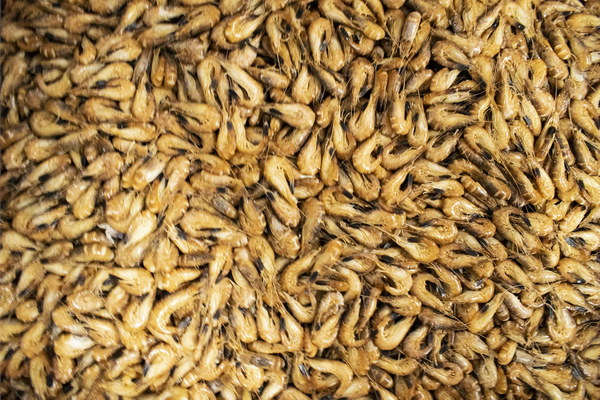Is Lard Good for Lung Detoxification Debunking the Myths
Lard, a traditional fat source derived from pork, has been a staple in many cuisines for centuries. While it's often frowned upon for its high-fat content, there are claims that lard has health benefits, particularly in terms of lung detoxification. But is there any truth to these claims? Let's delve into the topic and separate fact from fiction.

Firstly, it's important to understand what lard is. Lard is a type of fat obtained from the pork belly. It's rich in saturated fats and has a distinct flavor that makes it popular in baking and cooking. In recent years, the health community has been scrutinizing the use of lard and other saturated fats, mainly due to their link to heart disease and other health issues.
The idea that lard can help with lung detoxification is rooted in traditional Chinese medicine. According to this practice, certain foods have properties that can aid in the elimination of toxins from the body. While there is no scientific evidence to support this claim, it's worth examining the potential benefits of lard in the context of lung health.
1. Antioxidants: Lard contains antioxidants, such as vitamin E, which may help protect the lungs from oxidative stress. Oxidative stress is the imbalance between the production of free radicals and the body's ability to neutralize them, potentially leading to inflammation and disease. While the amount of vitamin E in lard is relatively low, it could still contribute to overall antioxidant intake.
2. Choline: Lard is a source of choline, a nutrient that plays a crucial role in the production of acetylcholine, a neurotransmitter involved in the regulation of the nervous system and lung function. Adequate choline intake may help maintain healthy lung function and reduce the risk of respiratory diseases.
3. Immune Support: The high-fat content in lard may help support the immune system. Fats are essential for the absorption of fat-soluble vitamins, such as vitamins A, D, E, and K, which are crucial for immune function. While lard is not a primary source of these vitamins, incorporating it into a balanced diet may contribute to overall immune health.
Despite these potential benefits, it's essential to consider the following points:
1. High Saturated Fat Content: Lard is high in saturated fats, which have been linked to an increased risk of heart disease. While some studies suggest that not all saturated fats are equally harmful, it's still important to consume them in moderation.
2. Caloric Intake: Lard is calorie-dense, so consuming it in excess can lead to weight gain and other health issues. It's important to balance its intake with other nutrient-dense foods.
3. Alternative Sources of Nutrients: While lard may offer some potential benefits, there are other healthier sources of antioxidants, choline, and fat-soluble vitamins. Incorporating a variety of foods into your diet can help ensure you're getting the necessary nutrients without the risks associated with excessive lard consumption.
In conclusion, there is no conclusive evidence to support the claim that lard is effective for lung detoxification. While it may offer some potential benefits, such as antioxidants and choline, its high saturated fat content and calorie density make it a less desirable option for those looking to maintain lung health. Instead, focus on a balanced diet that includes a variety of nutrient-rich foods to support overall health and well-being.









